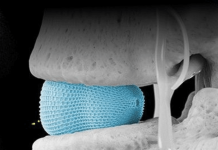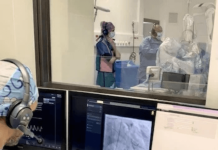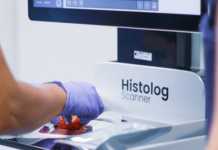UroMems announced today that it successfully completed enrollment in its first-in-human study of its UroActive system.
Grenoble, France-based UroMems designed the UroActiv system as a smart, automated artificial urinary sphincter (AUS). It treats stress urinary incontinence (SUI). Results from the initial study should support the design and implementation of a pivotal trial in Europe and the U.S.
The study cohort features six men, all of whom underwent the UroActiv implant procedure in either Paris or Nantes, France.
In June, the SOPHIA study successfully met the primary endpoints for its initial male patient. Primary outcomes for the study include successful device activation and the rate of explants and revisions at six months. The first male patient in the SOPHIA study met the primary endpoints by remaining revision-free. This patient also experienced restored social continence.
RELATED: New device can help test treatments in patients with gliomas
“We are delighted with the rapid enrollment and positive early results we’re seeing in our SOPHIA study,” said Pierre Mozer, UroMems chief medical officer and co-founder. “And with the treatment of our final study subject complete, we are now following the full clinical cohort in preparation for the pivotal study on our unique UroActive System.”
More about the UroMems UroActive device and the SOPHIA study
A MyoElectroMechanical system (MEMS) powers the UroActive device, the first smart active implant for treating SUI. The device is placed around the urethral duct and adjustable based on patient activity. UroMems designed it to provide patients with ease of use and a better quality of life compared to current options.
The company announced the first-in-human implant in November 2022. It also received Safer Technologies Program (STeP) designation from the FDA for UroActive. STeP, a collaborative program, helps reduce the time needed to develop and obtain marketing authorization for eligible devices.
UroMems developed its technology to restore quality of life, dignity and self-esteem to those suffering with SUI and other chronic conditions.
“We are indebted to these men for their participation in the SOPHIA study, and their enthusiastic response to their personalized therapy is heartening,” said Hamid Lamraoui, UroMems CEO and co-founder. “This clinical investigation began less than a year ago and soon we will have six-month follow-up results for the complete cohort.”






